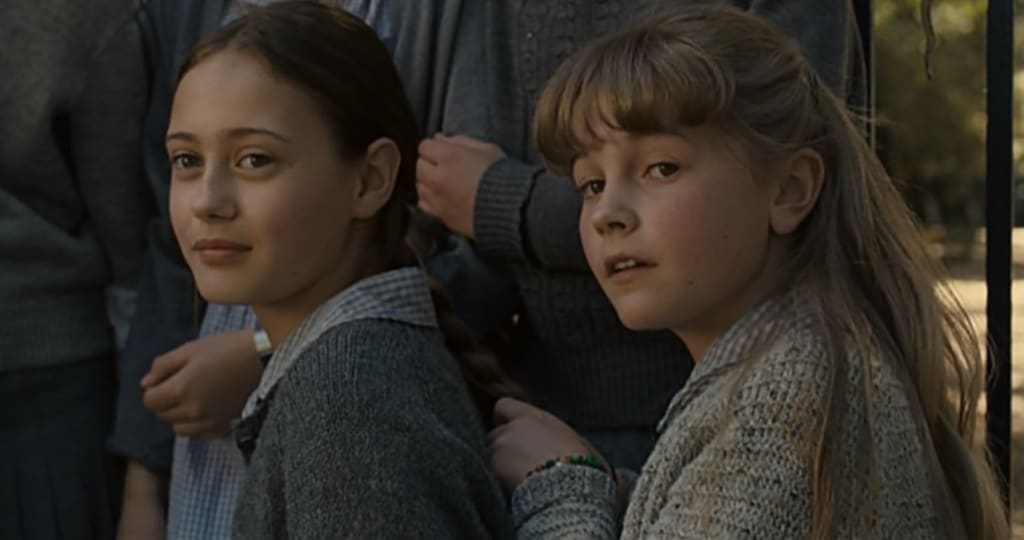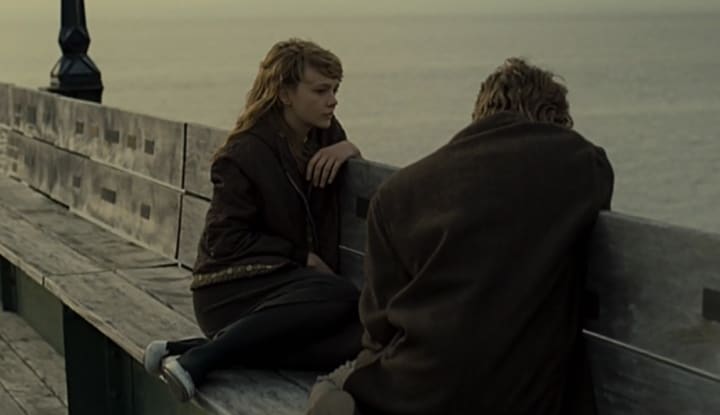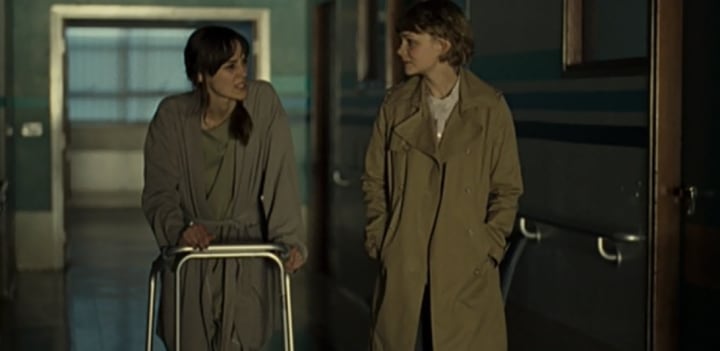'Never Let Me Go': The Cloning of Humanity
This is why the 2010 film still resonates with me every time I see it and why you should watch it too.

The first time I had ever heard of the film Never Let Me Go it was sometime around 2011 or 2012. I was searching for something to watch on Netflix and I had come across it. I was once told by a friend that it was so incredibly sad that she had to stop watching it. I took on the challenge to see if I could get through it, despite it being described as disturbing and sad.
Released in 2010, Never Let Me Go is based on the bestselling book by Kazuo Ishiguro and stars Carey Mulligan, Keira Knightley, and Andrew Garfield. It is a dystopian tale about a society which has learned to clone the human race in order to erase disease and extend life expectancy. To do this, the clones are raised from birth to be kept away from society until they are adults. They will then begin to donate their organs to the humans of the world. What was most surprising to me about this film is the fact that it takes place in the past. Many dystopian tales predict an unpleasant future for the human race, but Never Let Me Go looks backward to 1952 when a medical “breakthrough” makes cloning humans possible and therefore extends the lifespan of humans past 100 years. The majority of the film takes place in the 80s and 90s. However, as we know, mass human cloning never happened in that time period. This is what makes the film feel more bizarre.

Photo: Never Let Me Go (2010) Fox Searchlight Pictures
The first time I saw Never Let Me Go, that is exactly what I thought: this film is bizarre. I wasn't even sure I really knew what had gone on for the entire film. But I was definitely captivated by the emotion that the film had, and yes, just like my friend had described, it was incredibly sad. However I decided to watch it again shortly after seeing it for the first time, to truly figure out what the film was trying to say.
Never Let Me Go follows the story of 3 clones: Kathy (played by Carey Mulligan), Ruth (played by Keira Knightley), and Tommy (Played by Andrew Garfield). The film starts out when they are children and are first told their purpose in life. A new teacher at their secret boarding school named Miss Lucy informs the young students that their only purpose in life is to grow into adults and remain as healthy as possible so that they can donate their organs to humans in the “outside world.” Their life expectancy isn't long, and most of the clones will die after their third or fourth donation as a young adult.
The teachers at the boarding school, called Hailsham, dismiss Miss Lucy who divulged the secret to the children. We then learn that there are people from the “outside world” who do not believe in the practices of cloning and are trying to thwart the mission at Hailsham. Never Let Me Go follows Kathy, Ruth, and Tommy's lives as they grow up as clones and prepare for their inevitable death by organ donation.
Despite its disturbing subject matter, Never Let Me Go is one of my favourite films because of how it uniquely explores our humanity by setting it in our past. Normal everyday humans look at the clones as if they are not human, even though they are an exact copy of an actual person in the outside world. Because this system of organ donation is saving lives and wiping out disease, the human race tries to ignore the moral implications of cloning for organ donation. Even though humans treat the clones as subhuman, the clones still feel regular emotions such as love, jealousy, compassion, hurt, and anger throughout their short lives. Despite being brainwashed to believe that they are different than their human “originals,” their lives follow the same path familiar to ordinary human life. Kathy, Tommy and Ruth are caught in a love triangle with one another as they try to navigate through their unusual circumstances. They also search for their “originals” like they are looking for their parents, feeling a longing to know where they came from. Knowing whether or not the person they were cloned from is a successful or good person is very important to having an understanding themselves and their identity.
There is nothing about the clones that would suggest they are any different from the human race, and yet the human race continues to ignore this evidence. This is because they never want to go back to a world with disease and death. They would rather ignore the fact that clones are humans so they are able to live longer lives.

Photo: Never Let Me Go (2010) Fox Searchlight Pictures
But the film poses an important question: even if we live longer lives, do we ever really feel like we have had enough time? What I like best about Never Let Me Go is how it poses this question and makes you think about how easily the human race can treat each other poorly and forget their own humanity. As a result, Tommy, Ruth, and Kathy seem more human than any of the regular human beings out in the world. Never Let Me Go presents the thought that just because we have the ability to do amazing things through science, doesn't always mean it is what morally should be done. By setting this type of world in our past, Never Let Me Go suggests we must do better in our future. We must see the humanity in others, and live our lives the best we can despite the little time we have.
Never Let Me Go definitely isn't for the faint of heart. But if you enjoy films with a deeper meaning and that are unique, Never Let Me Go is the film for you. I have seen it many times over the last 8 years since its release and it still impacts me every time I see it. It sticks with you long after the credits roll, as a film should.
About the Creator
Sarah Franchi
Aspiring writer, working on my first novel. Living in Toronto. Wife and mother






Comments
There are no comments for this story
Be the first to respond and start the conversation.